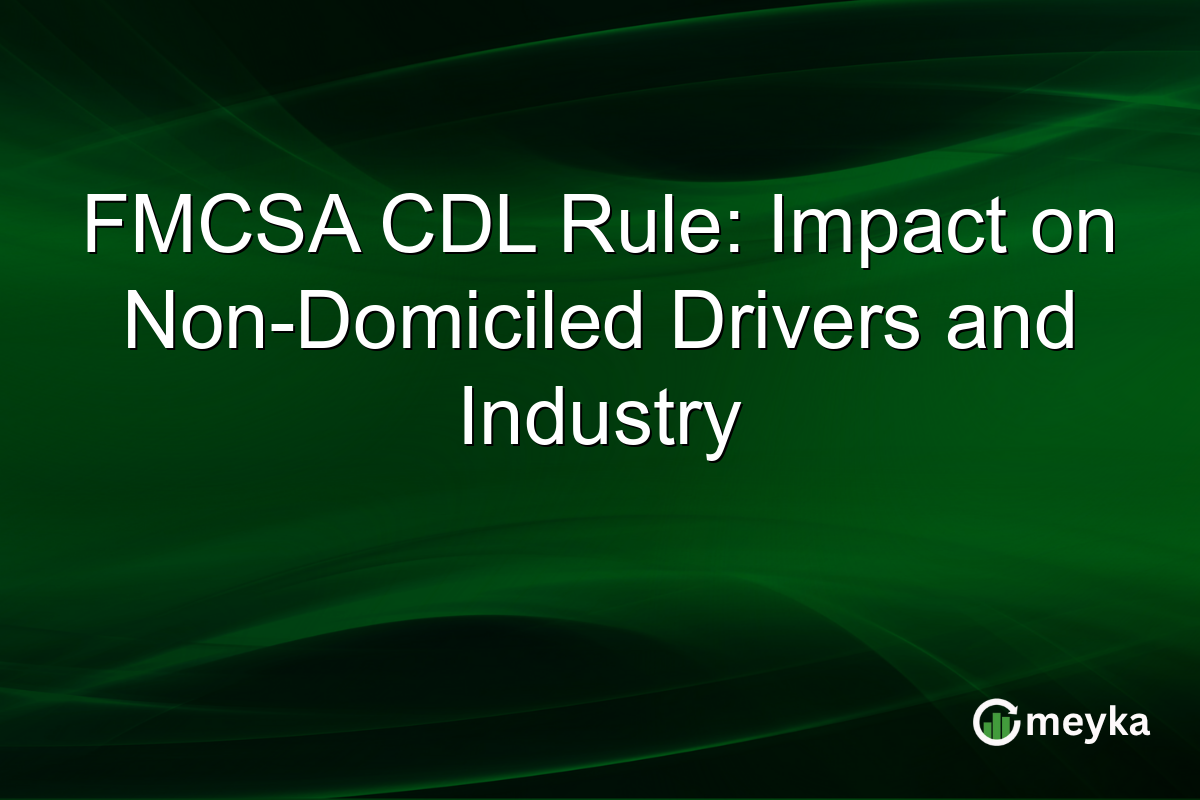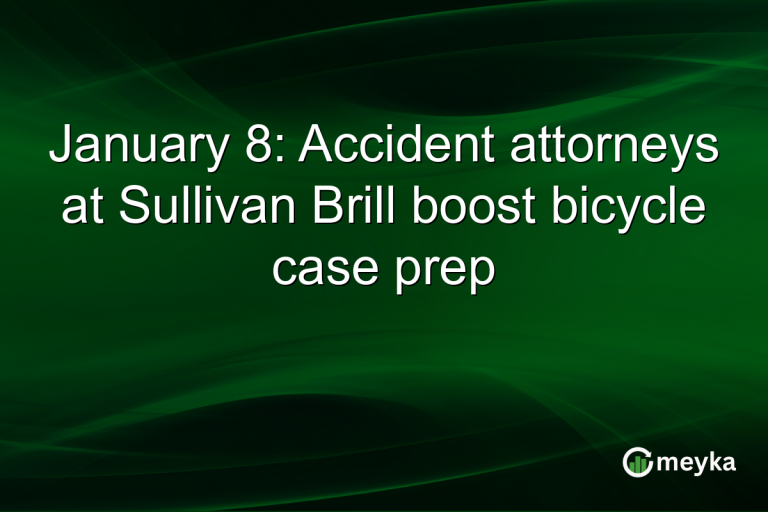FMCSA CDL Rule: Impact on Non-Domiciled Drivers and Industry
The FMCSA’s recent emergency interim final rule is redefining the standards for non-domiciled commercial driver’s licenses (CDLs). This rule affects around 194,000 existing CDL holders in the United States, and aims to boost road safety by imposing stricter controls. However, it has sparked debate, raising legal concerns and resistance from industry stakeholders.
Understanding the FMCSA CDL Rule
The Federal Motor Carrier Safety Administration (FMCSA) has implemented an interim rule to regulate non-domiciled CDL holders. This policy primarily aims to enhance safety by ensuring that all commercial drivers meet consistent regulations, regardless of their domicile status.
By limiting non-domiciled licenses, the FMCSA seeks to close loopholes that previously allowed drivers to circumvent stringent state regulations. This initiative targets a critical area of concern: the disparity in safety standards across borders.
[See recent discussions on X: https://landline.media/bill-would-cement-fmcsas-emergency-cdl-rule/]
According to the FMCSA, the ultimate goal is to reduce road incidents and create a safer environment. The introduction of this rule exemplifies the administration’s commitment to elevate trucking safety nationwide.
Implications for Non-Domiciled Drivers
Non-domiciled drivers, primarily foreign nationals or those living abroad, face new challenges under this rule. Many drivers now need additional documentation to satisfy U.S. safety and licensing standards, adding complexity to their professional duties.
These changes may limit the pool of qualified drivers, exacerbating the existing driver shortage within the trucking industry. The new requirements could also impose financial burdens on drivers needing to acquire additional certifications.
Industry experts suggest that while the rule aims to improve safety, it inadvertently puts pressure on drivers and companies relying on international labor. This could lead to increased operational costs as companies work to comply with the new regulations.
Industry Response and Legal Challenges
The trucking industry has voiced significant concerns regarding the FMCSA CDL Rule. Stakeholders argue that the rule could stifle business operations, particularly for cross-border commercial activities.
Several companies are contemplating legal action, citing potential violations of interstate commerce rights. Moreover, trucking associations are lobbying for amendments to accommodate the unique needs of non-domiciled drivers without compromising safety.
The FMCSA maintains that these measures are essential for upholding a high standard of road safety. However, ongoing debate highlights the need for balanced solutions that consider both regulatory and operational perspectives.
Looking Ahead: The Future of Trucking Safety
As the FMCSA CDL Rule takes effect, its long-term impact on the trucking industry remains uncertain. In the short term, increased scrutiny of non-domiciled drivers will likely improve compliance with safety standards.
Looking forward, the focus will be on how the industry adapts to these changes. Companies may need to innovate recruiting and training practices to maintain efficiency despite the new restrictions.
Ultimately, a collaborative approach involving regulators, industry stakeholders, and legal entities could foster outcome-oriented solutions leading to a safer, more regulated trucking environment.
Final Thoughts
The FMCSA CDL Rule reflects an important step towards unifying trucking safety standards across the U.S. By focusing on non-domiciled drivers, the rule seeks to ensure that all commercial drivers adhere to stringent regulations, thereby enhancing road safety. Nonetheless, the immediate challenges faced by the industry highlight the complexity of implementing such regulatory measures.
For the industry, the key lies in navigating these changes while maintaining operational efficiency. Whether through innovation or legal advocacy, stakeholders must address both safety and business continuity.
Going forward, the true test will be balancing rigorous safety standards with sustainable industry practices. This transition period offers a crucial opportunity for collaboration, ensuring a safer and more efficient future for all involved in the trucking industry.
FAQs
The FMCSA CDL Rule is an interim regulation affecting non-domiciled commercial driver’s licenses. It aims to enhance roadway safety by enforcing consistent licensing standards across drivers, regardless of domicile status.
Non-domiciled drivers face new documentation requirements to comply with U.S. safety standards. This can limit the workforce and impose financial burdens, potentially affecting their ability to work internationally.
The industry fears that the rule could hinder operations by reducing the labor pool and increasing costs. Companies face challenges in adapting to stricter regulations, prompting some to consider legal recourse.
Disclaimer:
The content shared by Meyka AI PTY LTD is solely for research and informational purposes. Meyka is not a financial advisory service, and the information provided should not be considered investment or trading advice.






